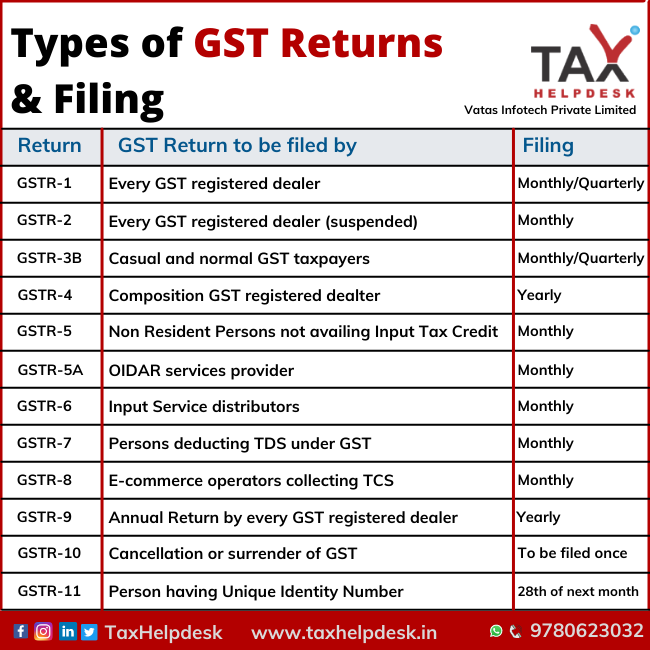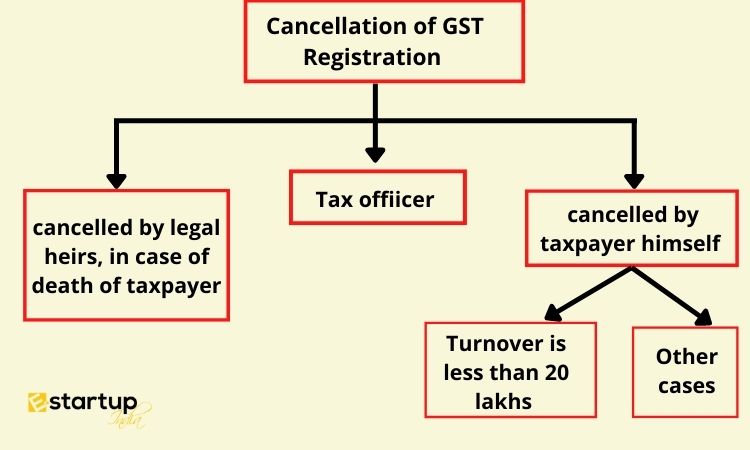
GST Registration Restored for Businessman Who Missed Deadlines: The Gauhati High Court has made a groundbreaking decision that is set to change the landscape for businesses struggling with GST registration issues. In a recent ruling, the court ordered the restoration of GST registration for a businessman who had missed crucial filing deadlines. This landmark judgment, delivered on August 1, 2025, highlights the importance of offering relief to businesses facing challenges due to procedural hurdles, a move that brings fresh hope to entrepreneurs who find themselves in a similar situation. While businesses are expected to follow strict timelines for filing returns and paying taxes under the Goods and Services Tax (GST) regime, this ruling shows that the courts are willing to step in when genuine efforts are made to comply. This article will break down the case, discuss what it means for businesses, and explain the implications of the judgment in simple terms.
GST Registration Restored for Businessman Who Missed Deadlines
The Gauhati High Court’s ruling offers a much-needed lifeline to businesses facing GST registration issues due to missed deadlines. This judgment recognizes that while businesses must comply with deadlines, there should also be room for relief when genuine efforts to comply are made. For entrepreneurs, it’s essential to stay vigilant about filing returns on time, but this case shows that the courts are willing to support businesses in times of difficulty. Stay informed, stay compliant, and remember that there’s always a way forward, even if you face a bump in the road.
| Key Data | Details |
|---|---|
| Court | Gauhati High Court |
| Date of Judgment | August 1, 2025 |
| Business Impacted | Mokibur Rahman, owner of M/s Real Enterprise |
| Case | GST registration restoration after missed deadlines |
| Law Referenced | Section 29(2)(c) of the CGST Act, Rule 22 of the CGST Rules |
| Key Outcome | Restoration of GST registration despite missed filing deadlines |
| Official Source | Taxscan Article |
The Background of the Case
Mokibur Rahman, a businessman operating under the name M/s Real Enterprise, found himself in hot water when his GST registration was canceled due to non-compliance with the filing of returns. According to the CGST Act, businesses are required to file GST returns regularly. If they fail to do so for six months in a row, the GST registration can be canceled.
In Rahman’s case, his registration was canceled because he missed filing his returns for six consecutive months. The GST authorities sent him a show cause notice but Rahman was unable to respond on time due to confusion over the online filing process and reliance on a tax consultant to handle his returns. Unfortunately, by the time he became aware of the notice, it was too late – the cancellation order had already been uploaded on the government portal.
Rahman didn’t just sit back after the cancellation. He acted quickly to update all his pending returns up to September 2023, and paid the outstanding taxes along with interest and penalties. However, when he tried to apply for the revocation of his GST registration, he was blocked by a system message stating that the time for filing such an application had passed.
His appeal against the cancellation order was dismissed before he took the matter to the Gauhati High Court, and this is where the landmark ruling was made.

What the GST Registration Restored for Businessman Who Missed Deadlines Means?
1. What Led to the Restoration?
The Gauhati High Court ruled in favor of Rahman, emphasizing the taxpayer’s efforts to comply. Justice Sanjay Kumar Medhi, in his ruling, pointed out that under Section 29(2)(c) of the CGST Act, a GST registration can be canceled if the taxpayer fails to file returns for six months. However, the law provides a mechanism to drop such cancellation proceedings once the taxpayer files the outstanding returns and clears all due taxes, including interest and penalties.
The court noted that Rahman had done just that – he had cleared his dues, filed his returns, and demonstrated a willingness to comply with all legal requirements. In light of this, the court ordered the restoration of his GST registration, instructing the GST authorities to process his application swiftly.
2. The Importance of Timely Compliance
While the ruling granted Rahman relief, it also underlined the importance of timely compliance. The court emphasized that businesses need to file their returns and pay taxes regularly to avoid such problems. However, it also acknowledged that genuine issues – such as confusion over procedures or reliance on external consultants – can affect a business’s ability to comply on time.
This case marks a significant shift in the legal landscape, as it shows that the courts are willing to intervene in situations where businesses have made genuine efforts to meet their tax obligations, even if there was a delay in doing so.
Practical Advice for Businesses
1. Stay on Top of GST Filing Deadlines
The best way to avoid facing similar issues is to stay on top of your GST filing deadlines. Businesses should ensure that they file their returns on time, every time, to avoid the risk of cancellation. Using reliable accounting software or hiring professional accountants can help streamline the process and reduce errors.
In the modern world, there’s no excuse for missing deadlines. With tools like GST Filing Apps, you can easily set up reminders to keep track of filing dates. Additionally, creating a simple checklist for monthly filings can help you stay organized and on top of your taxes.
2. Respond to Show Cause Notices Immediately
If you receive a show cause notice from the GST department, don’t ignore it. Respond immediately, even if you can’t meet the deadline. It’s crucial to show the authorities that you’re actively working to resolve the issue, as the court ruling made clear that a taxpayer’s willingness to comply can make a big difference in the outcome.
Pro Tip: Always confirm receipt of the notice and seek a timeline for any needed clarifications. Don’t wait for the system to automatically block your attempt to file for revocation.
3. Revocation of GST Registration
If your GST registration is canceled, you can apply for revocation, but only within the specified timeframe. If the time limit has passed, you can still approach the court, but this may be a more challenging process. Always consult a tax professional to understand your options and timelines.
4. Clear Outstanding Taxes and Penalties
Once your registration is canceled, make sure to clear all outstanding dues, including taxes, interest, and penalties. The court’s ruling in Rahman’s case made it clear that this is a crucial step in restoring your registration. Be aware that penalties and interest will still be applicable, but clearing them will help in restoring your GST registration.
5. Seek Professional Help When Necessary
It’s important to seek expert advice if you find yourself overwhelmed by the GST system. A professional tax consultant or a chartered accountant can help you navigate the complex filing procedures and ensure that you meet all the necessary deadlines. Having someone with the right expertise on your side can make a huge difference in your compliance journey.

The Legal Landscape: Changes and Implications
While the Gauhati High Court’s ruling is a positive development, it is important to recognize that businesses are expected to adhere to deadlines and comply with tax laws. However, this judgment adds a layer of flexibility for businesses that face legitimate hurdles in meeting deadlines due to circumstances like misunderstandings, technical glitches, or consultancy issues.
This ruling is a step toward creating a more business-friendly approach in the Indian tax system, balancing strict compliance requirements with reasonable relief mechanisms. As the GST system continues to evolve, it is likely that we will see more cases where the judiciary steps in to offer relief, especially in situations where businesses show a genuine intent to comply.
For businesses across the country, this serves as a reminder that there are safety nets in place, but it also emphasizes that timely compliance is critical. The government may offer relief, but only if taxpayers demonstrate a commitment to fulfilling their obligations.
Key Takeaways from the Ruling
- The Gauhati High Court ruling is a clear signal that businesses should comply with GST filing deadlines, but it also offers relief for those who miss deadlines through no fault of their own, provided they make genuine efforts to clear dues and file pending returns.
- The decision emphasizes the need for clear communication between businesses and tax authorities, and the importance of having a contingency plan in place for handling tax filings.
- While this ruling offers relief, it does not mean that businesses can ignore deadlines with impunity. The ruling is a reminder that timely compliance is critical, and taxpayers must remain diligent to avoid penalties.
Gauhati HC Rules GST SCN Invalid Without Personal Hearing Date
Hostel Inmates Cry Foul as GST Hike Sends Rents Soaring in Chennai
Crores Lost, No One Watching? UP’s GST Growth Tanks as Fake Firms Multiply









